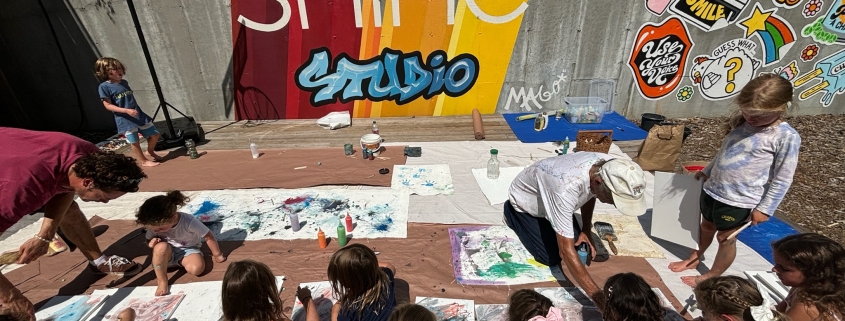How To Prepare Your Child for Their First All-Day Summer Camp
The first time your child heads off to a full-day summer camp, it’s not just a schedule change—it’s a developmental leap. They’re stepping into a new, less structured environment without the familiar guardrails of school or home. And you’re learning how to let go, just a little, while they figure out who they are in a new setting. Preparing for this moment means more than just packing a lunch—it’s about building trust, independence, and emotional resilience.
Here are some tips to get started:
Normalize Uncertainty
Rather than simply telling your child camp will be “so much fun,” it’s more helpful to create space for mixed emotions. Acknowledge that it’s okay to feel nervous and excited. Naming these feelings gives kids permission to feel them—and move through them. You might say, “It’s normal to feel a little weird about going somewhere new. That’s how we grow.” The goal isn’t to eliminate discomfort—it’s to equip your child to tolerate it, knowing they’ll come out stronger on the other side.
Practice Being Uncomfortable in Safe Ways
A successful camp experience often hinges on how well a child can handle minor discomforts—getting splashed with cold water, eating a sandwich they’re not thrilled about, or not knowing anyone on the first day. You can prepare them by leaning into small moments of controlled discomfort before camp begins: let them order for themselves at a restaurant, try a new activity without you, or go on a playdate with kids they don’t know well. These mini-challenges build confidence, especially when framed as, “You did something hard and got through it.”
Teach Them to Notice and Name Needs
One of the biggest transitions at camp is that parents and teachers won’t be there to read their cues. Kids need to learn to advocate for themselves in simple but crucial ways—asking for water, finding a bathroom, telling a counselor they need a break. Before camp starts, talk about what it feels like to be thirsty, overwhelmed, or unsure, and role-play what they might say. “Excuse me, can you help me?” might sound obvious to adults, but to a shy or anxious child, it’s a skill worth rehearsing.
Pack with Intention
Yes, sunscreen and extra socks are important. (Label everything!) But the most powerful thing you can pack is a small gesture that helps your child feel connected and remembered. A short note in their lunchbox or a little inside joke on a sticky note tucked in their backpack can serve as a touchstone—proof that home is still with them, even when they’re not there. Emotional anchors can ease separation and boost a sense of security.
Focus on the Big Picture
Parents often fixate on how that first day goes—but the real value of camp unfolds over time. Some kids come home thrilled; others need a few days (or weeks) to find their rhythm. Instead of asking, “Did you have fun?” try questions that invite reflection and storytelling: “What surprised you today?” “What’s one thing you’d want to do again?” Or “who did you sit with at lunch?” Progress is measured by the gradual build of confidence, adaptability, and self-trust.
Get Ready for the 2025 Camp Season in the Hamptons
Summer camp isn’t just a break in the routine—it’s a dress rehearsal for life. Preparing your child means trusting that they’re capable, even when things feel unfamiliar. And trusting yourself, too: that giving them space to stretch doesn’t mean they’re going it alone.
Still looking for a spot? Learn more about the Shine Studio Hamptons summer camps.



